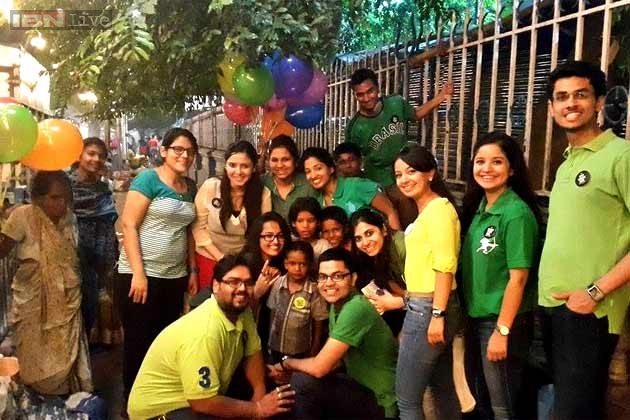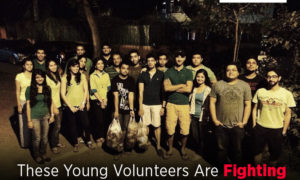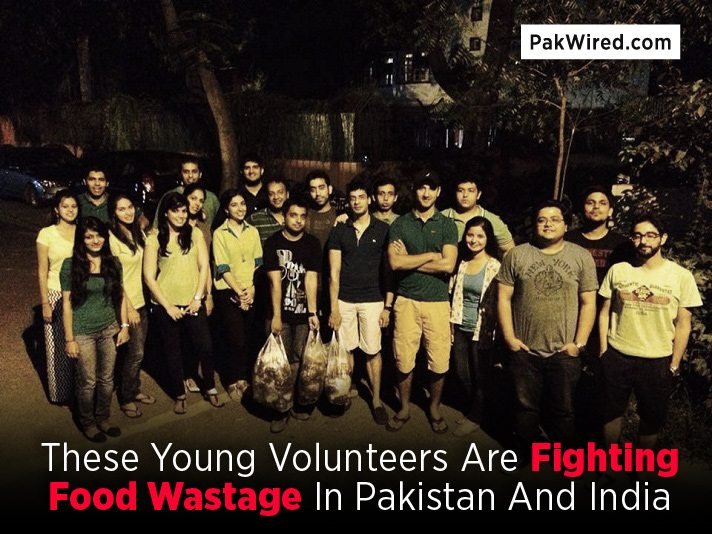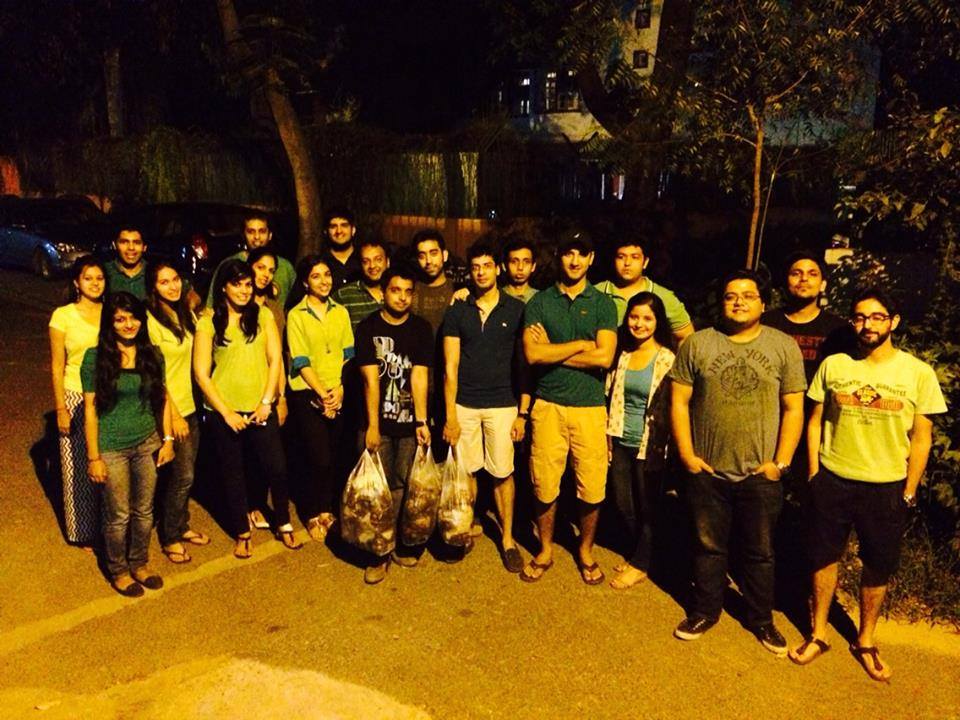
Soon, friends and strangers alike had joined the group in their mission, joining them on their drives and helping them to hand out the repackaged food. In just a few months, a nationwide volunteer movement named the Robin Hood Army (RHA) had been formed. Their mission: to stop food wastage and hunger.
Neel Ghose and Anand Sinha, both 27-years-old, began the movement after thy heard about Refood International, a Portuguese organisation that distributes excess food amongst poor communities.
“Using a hyperlocal model, they collect excess food and give it to those who need it. But every community has their own Refood chapter,” Ghose told The Guardian. “I realised it was something that can be very easily done in India, where the need would be much more.”
After successfully launching a social media campaign, the Robin Hood Army grew significantly in both momentum and volunteers. As of June 2015, they claimed to have over 500 volunteers across thirteen cities, including Mumbai, Kolkata and Hyderbad.

Sinha adds: “What’s happening at a grassroots level is completely driven by the locals.”
In April 2015, the Robin Hood Army began to operate in Pakistan when volunteers appeared in Karachi and Lahore.
Sarah Afridi, a volunteer who helped set up the group in Pakistan told reporters: “our Facebook page has helped us get in touch with restaurants and our posts became a form of accountability.”
Ghose agrees: “We realised that we would be much more legitimate if we showed restaurants pictures of what we were doing. That’s when things took a huge leap forward.”
The Robin Hood Army has evolved based on the idea of decentralisation. Small groups, mostly made up of young professionals, are in charge of and responsible for small, specific areas. They are then expected to find local restaurants, and convince the owners to donate any extra food they would otherwise throw away to their cause. They then take the food to the people they believe are most in need, for instance the homeless or children in orphanages. Throughout Delhi and the National Captial Region, more than thirty restaurants have agreed to be involved in the project, with some even offering freshly cooked meals for distribution as well as their leftovers.
Lawyer Suvarna Mandal, 26, and head of RHA’s social media Aarushi Batra, 24, are both volunteers in Delhi and have helped distrubute the food, which can range from biryani and dhal to sweets and cakes. The latter may not seem healthy, but as Mandal explains: “We don’t look into the nutritional aspects per se, we just try to fill their stomachs.”
“Some restaurant owners even join them on drives,” Ghose added. “In a way, they’re not just helping the Robin Hood Army, they are the Robin Hood Army.”
Between November and January, when most weddings take place in India, the Robin Hood Army works with caterers to ensure than any leftover food from wedding ceromonies doesn’t go to waste.
According to the Centre for Development Communication (CDC), an NGO situated in Jaipur, there are over seven million weddings in India between November and January. This may be a time of excess and celebration. But it’s thought one-fifth of all the food prepared for weddings is thrown away – that’s £1.6bn worth of wasted food.
“It’s no secret that weddings in India are huge,” Batra says. “In Hyderabad, four of our volunteers fed around 970 people just with excess food from one wedding.”
The CDC has also developed an initiative named Annaksheta, which focuses entirely on the food wasted at weddings, festivals and other social celebrations. Dr Vivek Agrawal founded Annaksheta in 2010 after he witnessed children scavenging amongst the discarded food piles left besides a town marriage hall. “The way food is eaten and wasted in weddings is an eye-opener for everybody,” he says.
Ravi Dhingra, who helps to run Annaksheta, said that many volunteers collect the food from weddings and festivals and store it in fridges overnight before ensuring it’s edible and handing it out the next morning. In 2012, almost 10,000 people were fed from the leftovers of sixteen weddings on Akshaya Tritiya, a day where many Hindus are wed.
When asked about the Robin Hood Army, Dhingra said: “Pioneering efforts like [theirs] demonstrate enormous opportunities to reduce food waste — and enhance food security worldwide.”
Both Ghose and Dhingra believe that more need to be down to tackle the appalling food poverty that runs rampant throughout south Asia. “Food donations are not the solution to food wastage or poverty, [but] food redistribution can help alleviate [its] impacts,” Dhingra says.
Although India is no longer the penultimate ranking in the Global Hunger Index for underweight children, its hunger status still classifies as ‘serious’.
In the 2015 Global Nutrition Report, Manoj Kumar, CEO of the Naandi Foundation, said: “Recent reports seem to indicate a downward trend in child malnutrition in India, but the battle is far from won.” Meanwhile, Pakistani Sania Nishtar, founder and president of Heartfile, added: “There is a clear dearth of policy attention to nutrition in countries where children growing up healthy are in a minority. Amongst the plethora of reasons for this is the fluidity of nutrition as a sector, which is why it washes down (institutional) cracks.”
Ghose is aware of the problems. “Right now, we feed around 5,000 people a week,” he says. “In the bigger scheme of things, that’s still nothing.”
However, things are still looking up as the Robin Hood Army plans to grow with new partnerships and volunteers ready to spring into action around the continent.
“We’re in an exciting time where more people want to bridge gaps in society,” Sinha says. “Through social media and through our volunteers, we can channel this energy and create something stronger out of this. The Robin Hood Army is just the beginning.”



